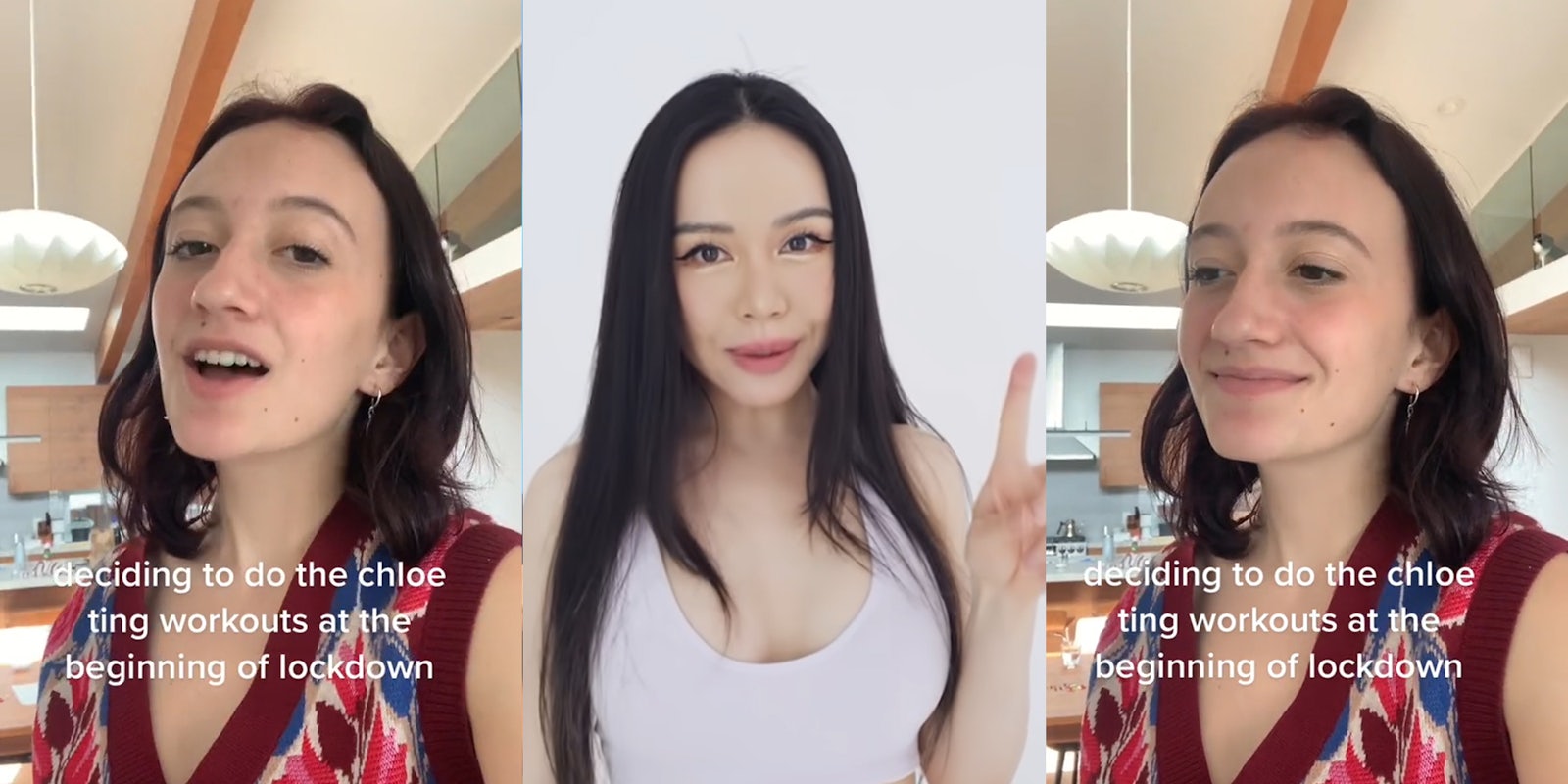A TikToker’s video about doing Chloe Ting workouts during the pandemic has sparked a conversation around disordered eating and exercise habits throughout initial COVID-19 quarantines.
TikToker Isabel (@userdoesnotexist01234567) says that she decided to “do the Chloe Ting workouts at the beginning of lockdown.” She then stares into the camera. Ting’s home workouts peaked in popularity during initial pandemic lockdowns; her “Flat Belly and Round Booty Workout,” uploaded in 2020, has over 4 million views on YouTube.
Although Isabel’s TikTok doesn’t outright say anything about Ting’s workouts, commenters on her video seemed able to grasp what was unsaid.
“It was all of us having nothing to do but work out and obsess over it and perfecting ourselves for when lockdown was over,” @hopeyanhut commented. The comment received over 14,000 likes, and Isabel’s video had over 3 million views.
In her video’s comments section, Isabel said that the aftermath of Ting’s workouts wasn’t the fitness influencer’s “fault at all.”
“She did absolutely nothing,” Isabel commented. “I think [Ting’s workouts] just unlocked some habits that were already there.”
Commenters discussed how Ting’s workouts could have led to disordered eating and eating disorders.
“People ended up falling down the [eating disorder] pipeline and became obsessed with losing weight,” @15ab3113 commented. They also mentioned that this wasn’t Ting’s fault.
“The Chloe Ting to the hospital pipeline,” @stono.jadaicus wrote.
“I know she meant no harm but I’m still recovering from it,” @miarice355 commented.
Eating disorders and disordered eating habits became more widespread during the pandemic. Healthline reported that “the number of teen girls going to the ER for eating disorders nearly doubled during the pandemic.”
“The lack of structure in teenagers’ daily routines, emotional distress, and fluctuations in food availability likely contributed to the rise in eating disorders,” according to Healthline.
Additionally, according to Professor Bryan Austin of the Harvard School of Public Health, increased time on social media—which gives ample opportunities to compare one’s body to that of others—during the pandemic could have increased the risk of eating disorders and disordered eating.
It seems like people didn’t just get eating disorders. Commenters on Isabel’s video shared that they dealt with related conditions, like body dysmorphia, too.
Many felt comforted by Isabel’s video and the community it created.
“Why was this such a universal experience,” @juliarish4 commented.
“I’m so glad everyone’s here right now,” @yo.yo.its.smella wrote.
The Daily Dot reached out to Isabel via TikTok comment and Ting via email.



